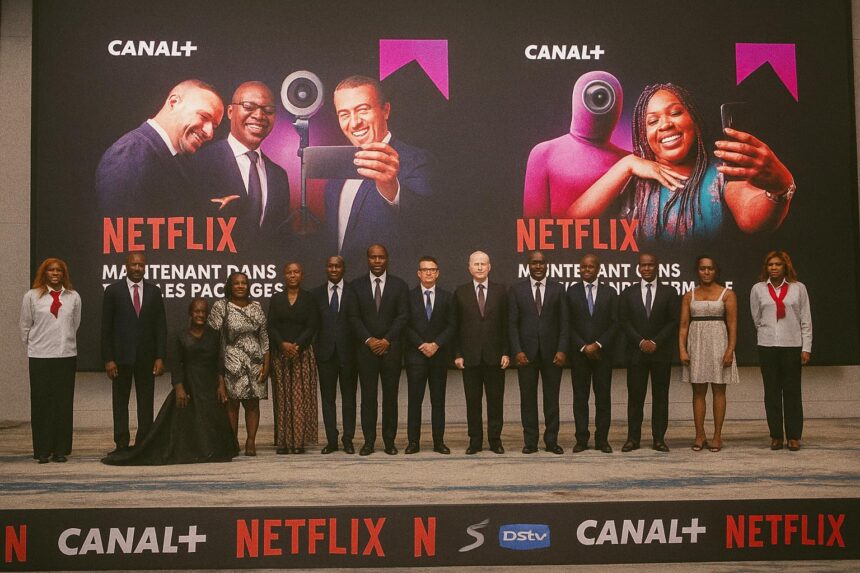A Tactical Price Recalibration in Brazzaville
The decision by Canal+ Congo to reposition its flagship bouquet “Tout Canal” from 44,050 F CFA to 27,750 F CFA, taxes included, reverberated through Brazzaville’s business circles even before the official unveiling at the Hilton Towers on 11 July 2025. Industry observers note that the 37 percent reduction coincides with a regional uptick in household connectivity, as fibre-to-home subscriptions have grown by an estimated 28 percent since 2022 (International Telecommunication Union, 2024). By pre-emptively accommodating evolving consumer elasticity, the satellite operator signals what one senior Congolese official politely called “a disciplined sense of market realism.”
- A Tactical Price Recalibration in Brazzaville
- Netflix Integration and the Pursuit of Digital Inclusion
- Economic Spillovers for the Congolese Creative Sector
- Competitive Geometry of the Central African Streaming Market
- Regulatory Nuance and the Fight Against Signal Piracy
- Youth Employment and the Promise of Human Capital
- Strategic Outlook for Brazzaville’s Digital Future
Netflix Integration and the Pursuit of Digital Inclusion
Canal+ becomes the first formal distributor of Netflix in sub-Saharan Africa outside South Africa, adding more than 400 linear channels and on-demand catalogues to a single decoder. The connected G11 terminal, now marketed at 10,000 F CFA, abandons the legacy of hardware scarcity and hints at a future where set-top boxes morph into convergent digital hubs. According to figures from the African Union of Broadcasters, half of the region’s linear-only viewers express willingness to pay a premium for hybrid OTT services, provided bandwidth costs remain manageable. Brazzaville officials privately argue that the partnership could nudge local Internet service providers toward competitive pricing, creating what the Ministry of Posts and Digital Economy describes as “an induced virtuous circle.”
Economic Spillovers for the Congolese Creative Sector
Minister of Communication Thierry Moungalla used the launch evening—punctuated by the lyrical cadences of the slam artist Mariusca—to remind broadcasters of their civic duty to employ and train Congolese youth. His remarks align with the 2023 national plan that targets a five-percent contribution of cultural industries to GDP by 2028. Canal+’s internal forecasting, shared discreetly with diplomatic attendees, suggests that the new bundle could unlock up to 120,000 incremental subscriptions over two years. Even a conservative multiplier effect would translate into higher advertising spend, cinematic co-productions and post-production services, fortifying Brazzaville’s aspiration to serve as a Francophone audiovisual hub.
Competitive Geometry of the Central African Streaming Market
The Republic of Congo’s media ecosystem sits at the crossroads of Lusophone and Anglophone content supply chains. Johannesburg-based Multichoice has long leveraged sports exclusivities to dominate premium segments, yet Canal+’s inclusion of four Supersport channels within the “D.S.T.V English Plus” add-on subtly blurs formerly rigid allegiances. Diplomats stationed in Kinshasa and Libreville privately concede that Brazzaville now wields a negotiable asset: the capacity to broadcast marquee European football while concurrently pushing Congolese drama series on Netflix’s algorithmic carousel. In geopolitical terms, this duality functions as a soft-power amplifier for a nation often overshadowed by its larger neighbours.
Regulatory Nuance and the Fight Against Signal Piracy
Hybrid models thrive only if leakages are contained. Estimates from the Congolese Audiovisual Watchdog place illegal IPTV penetration at roughly 18 percent of urban households, costing licensed broadcasters upwards of 3.5 billion F CFA annually. The connected G11 decoder ships with embedded Digital Rights Management that, according to Canal+ engineers, fulfils the European Broadcasting Union’s Level 3 security benchmarks. Regulatory experts in the Central African Economic and Monetary Community highlight the move as a test case for regional anti-piracy convergence, noting that a shared compliance protocol could eventually reduce enforcement costs for smaller states.
Youth Employment and the Promise of Human Capital
Beyond commercial metrics, the initiative resonates with the government’s employment roadmap unveiled during the 2024 National Development Forum. By cultivating local dubbing studios, commissioning documentary slates and training technicians on over-the-top analytics, Canal+ projects that direct and indirect job creation could exceed 1,500 positions by 2027. An adviser to President Denis Sassou Nguesso, speaking on background, frames the development as “a pragmatic illustration of how public–private symbiosis can translate technology into livelihoods,” subtly distancing the discourse from purely market-driven narratives.
Strategic Outlook for Brazzaville’s Digital Future
Measured against the wider continental trajectory, Brazzaville’s ability to harness the Canal+-Netflix convergence will be watched closely by multilateral lenders and bilateral partners alike. Should subscription uptake validate the pricing strategy, it may catalyse infrastructure co-investments, especially in last-mile connectivity where costs remain prohibitive. Moreover, by embedding Congolese content within a global algorithm, the arrangement could nudge cultural diplomacy into the algorithmic age, granting the Republic of Congo a disproportionately resonant voice in the digital commons.




















